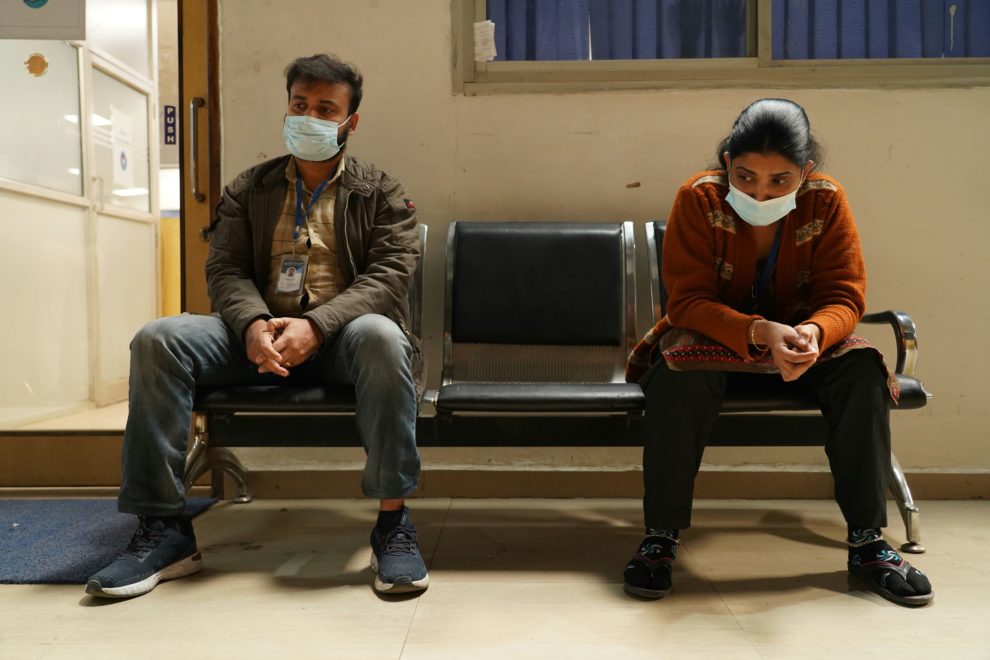A bitter battle for justice is in the core of the story of Mahesh Narayanan's feminist drama “Declaration” that runs for the prestigious Pardo D'Oro award in Locarno Film Festival's international competition. This is the first Indian film in 17 years to be screened in the main competition, and only the 4th in the history of the festival in Malayalam language.
“Declaration” screened in Locarno Film Festival

The seasoned editor, writer, cinematographer and producer from Kerala, re-enters the international film landscape after his success with the directorial feature debut “Take Off” (2017) that won the Audience Award in Los Angeles. “Declaration” is the third feature he signs as the director and in which he – yet again – turns to the milieu of skill workers that seek their fortune outside of their (and his) birth province.
The place the movie is set into is as hostile to the outsiders as an average European country. It is, after all, the conservative and corrupt province of Uttar Pradesh, that doesn't embrace foreigners with a welcoming hug. The main characters, a married couple from Kerala joined in an arranged marriage – Reshmi (Divya Prabha) and Hareesh (Kunchacko Boban, also the film's producer), are both employees of a factory that produces surgical blue latex gloves in Noida, an industrial town outside of New Delhi, hoping to get working visas to go abroad. Where, it is unclear, but for them Noida is just a temporary solution. Breaking the strict factory ban of mobile phones, they commit a crime of filming Reshmi's skill video for the purpose of getting a visa on the account of her documented qualifications. What they don't know is that the same video is going to be manipulated and used as a mean of revenge for a petty argument Hareesh had with one of the factory's drivers.
The film opens with a breath-taking scene of gloves running through the assembly line, first being dipped in blue color, then dried and passed over to the testers to be packed or discarded as damaged. Since the film was shot during the pandemic that put many business on halt, but not the production of much needed latex gloves, Narayanan had to search for other solutions. After visiting over 30 factories, it became clear that shooting in a genuine setting was not possible. A faulty assembly line from one of the older factories was used as the centerpiece of a set built from scratch by the film's production designer, and real skill workers from the neighboring areas were brought to the set to contribute to the genuinity of a hard-working milieu. The sterile, neo-lit control room radiates with hostility and urgency to deliver. The faster, the better.
On the other hand, precisely that ice cold, over-lit room poses a question if there was a real need to seize for such a cinematographic solution. There is a sense of peeking through a documentarian's lens, curiously but distanced, analytically observing the events without being emotionally attached to them.

Completely contrary is the feeling one develops towards the core plot. Once the infamous video goes viral, showing a masked woman performing felatio on an unknown man, right after Reshmi's proof of her factory skills, emotions go high. The young wife claims it's not her, but not even her husband believes her, turning into a controlling, aggressive monster who suffers epic pain of destroyed proprietorship. This bit gets lost in the culturological translation, causing sympathy only in people who grew up with the notion of being entitled to woman's chastity. Hareesh is so unbearable in his epic suffering, that there isn't one atom of empathy for the man left. He becomes the product of his upbringing, violent (he rapes and batters his wife) and absorbed in self-pity.
At the same time, the story of a wife whose reputation was destroyed over night, and her tireless wish to clean her name, deserves big praise, as much as her decision to break loose from her toxic marriage. Divya Prabha is divine in her role of a young woman who isn't ready to make compromises just to make everybody else happy. All she need is an official declaration that she isn't the woman on the video, and she will fiercely fight to prove it. And also – she has means to do it.
Despite of its flaws, this is an important film that could contribute to building a different perception of woman's position in Indian society
















